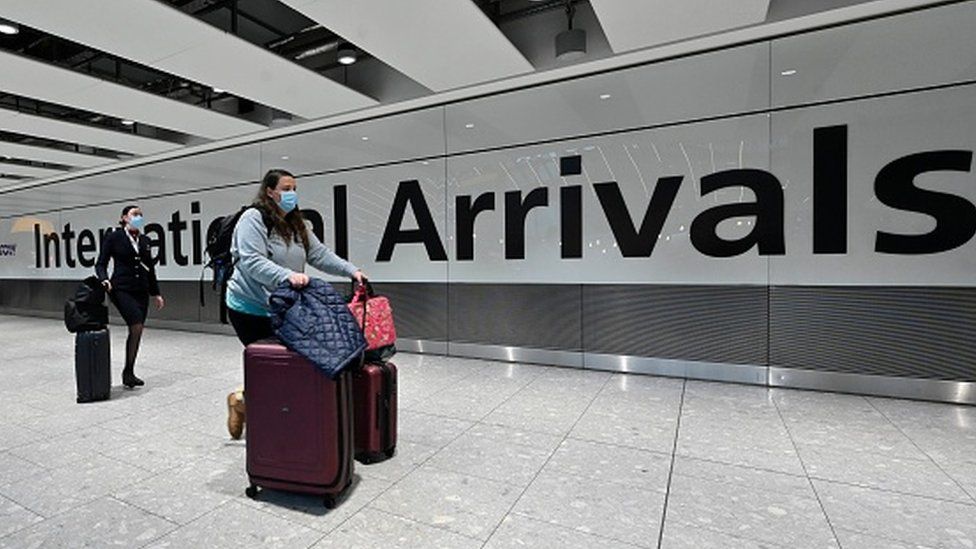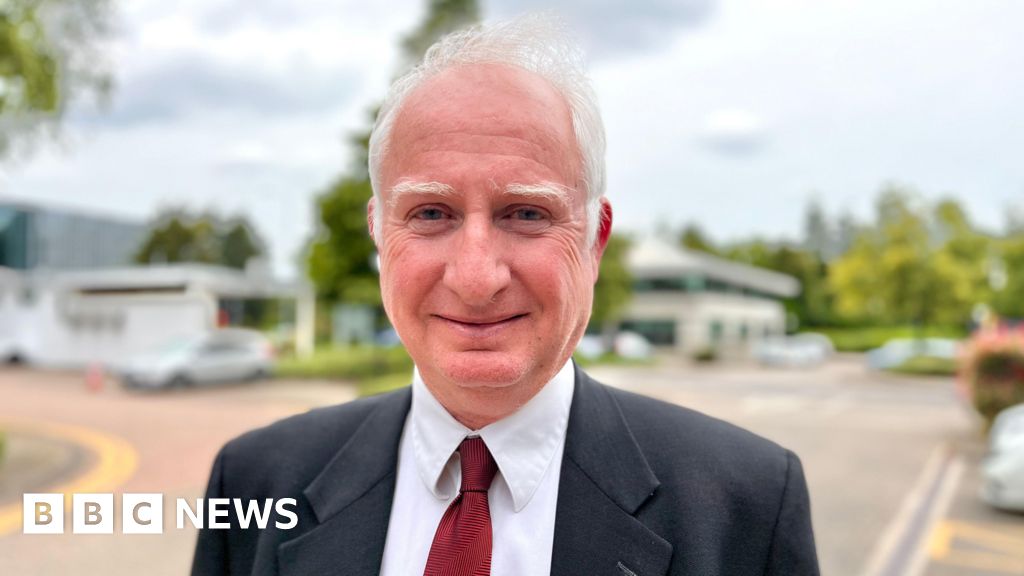ARTICLE AD BOX
 Image source, Getty Images
Image source, Getty Images
Rishi Sunak has been under pressure to reduce migration to the UK
By Joshua Nevett
BBC Politics
A group of Tory MPs is calling on Prime Minister Rishi Sunak to drastically cut migration, warning the failure to do so "risks eroding public trust".
The New Conservatives have issued a 12-point plan to cut net migration by about 400,000 before the next election.
The group of 25 MPs recommend closing visa schemes for care workers, increasing salary thresholds, and capping refugee numbers.
But critics say the proposals would have consequences for the UK economy.
The UK's overall population grew by more than 600,000 people last year, according to the latest figures from the Office for National Statistics.
The ONS said the rise was largely driven by more people from outside the EU arriving on student and work visas, and refugees fleeing conflict and persecution in Ukraine and Hong Kong.
The sharp increase represents a huge political challenge for Mr Sunak and the Conservatives, who have repeatedly promised to reduce net migration since taking power in 2010.
The party's 2019 manifesto committed to getting the number down, without setting a specific target, while former Conservative Prime Minister David Cameron once pledged to bring net migration below 100,000.
In a report launched on Monday, the New Conservatives claim the British public "did not vote for mass migration and the social and economic harms it brings".
"Without swift action to get migration under control, the Conservative Party will further erode the trust of hundreds of thousands of voters who lent the party their vote in 2019," the report says.
The report was written by Tory MP Tom Hunt and backed by a group of right-wing Conservatives, including the party's deputy chairman, Lee Anderson, and backbencher Miriam Cates.
One of the report's main recommendations is closing temporary schemes that grant eligibility for worker visas to care workers.
The report says this policy will reduce visas granted by 117,000, leading to a reduction in long-term inward migration to the UK of 82,000.
Part of this proposed policy involves only allowing in skilled workers who earn £38,000 a year or more.
Ms Cates told the BBC the UK needed to cut off the supply of cheap foreign Labour and encourage from British people to fill jobs in the care sector.
She said scrapping temporary visa schemes for care workers would force "employers to look at recruiting local young people".
"We are never ever going to make that possible unless we close the immigration route first," the Tory MP said.
But fellow Tory MP Tim Loughton said while the principle of reducing met migration was right, there was a shortage of care workers in the UK.
"It's not as simple as just putting the salary thresholds up as well," he said. "There's quite a lot of skilled but lower paid people that we need coming into this country."
Some of the report's other proposals include:
- Tightening restrictions on student visas to stop graduates staying in the UK for longer than two years without a job offer
- Capping the number of refugees legally accepted for resettlement in the UK at 20,000
- A 5% cap on the amount of social housing that councils can give to non-UK nationals
- Raising the health surcharge that an individual immigrant would pay to use the NHS to £2,700 per person, per year
Madeleine Sumption, director of the Migration Observatory at the University of Oxford, said "trying to predict the impact of individual policy changes on migration is very hard".
"Even the most fastidious attempts to model the impacts of policy on numbers - and this isn't one of them - will usually be wrong," she said.
She said immigration policy was a "political choice" and there was "no reason the UK couldn't choose to be more restrictive".
But she said the report does not "engage with any of the trade-offs that more restrictive measures involve".
"For example, one of the reasons demand for care workers has been so high is limited public funding in the care system," Ms Sumption said.
"International students have been a growing source of revenue for universities, so proposals that would reduce student numbers cannot be considered in isolation from the funding of higher education."
She said some of the proposals in the report were "a bit outlandish".
"Net migration is expected to decline anyway over the coming years even without policy changes," she added. "However, if they want more significant restrictions it requires an honest conversation about the wider consequences and how to mitigate them."

 1 year ago
40
1 year ago
40








 English (US)
English (US)